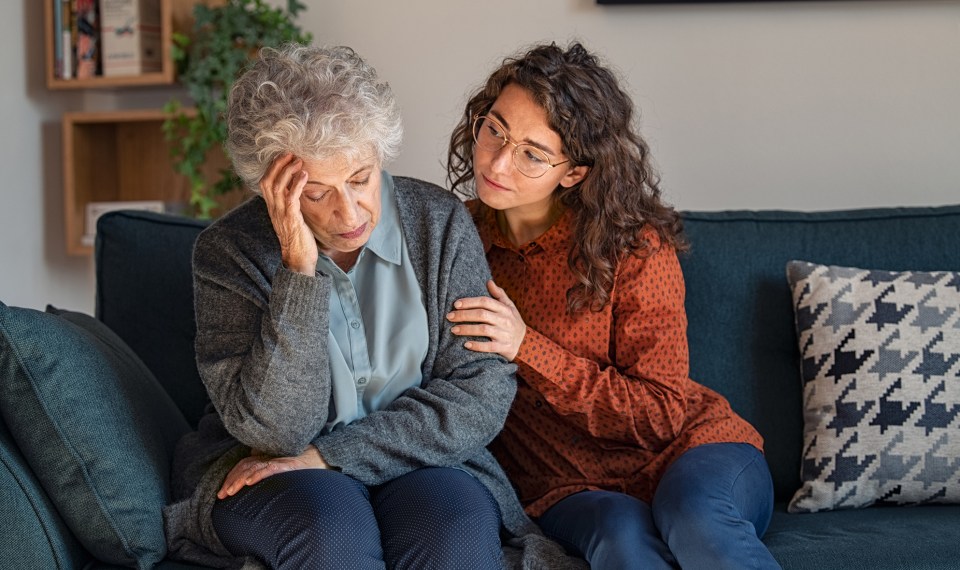Updated April 2022
You are only 52 years old and in a state of disbelief. “How could this happen to me?”
You knew that older people had strokes, but it was never anything you thought could happen to you, especially before the age of 60. One thing is certain: you want to do everything you can to make sure you don’t have a second stroke.
Encompass Health is a national sponsor of the American Heart Association/American Stroke Association’s Together to End Stroke. For more information on stroke prevention download our Life After Stroke guide for patients and caregivers.
What are the Odds of a Second Stroke?
It is important that you and your doctor start working on prevention as soon as possible. Most people, and even many doctors, don’t realize that the risk of a second stroke is as high as 12.8 percent in the first week after a TIA (transient ischemic attack). If you do not change certain lifestyle factors, the risk of a second stroke within the next five years can be as high as 30 percent. Waiting is not an option. Here are 10 risk factors that account for 90 percent of all strokes (in no particular order).
- High blood pressure
- Smoking
- Waist size-obesity
- Poor diet
- Lack of physical activity
- Diabetes Mellitus
- Excessive alcohol consumption
- Psychosocial stress/depression
- Atrial fibrillation or previous heart attack
- High cholesterol
Fortunately, 80 percent of recurrent strokes can be prevented with diet modification, exercise, blood pressure control, cholesterol reduction with the help of statins, and treatment with anti-platelet medications. Ideally, you will focus on every possible risk factor. However, that can be overwhelming, so let’s start with the big three.
Blood Pressure Control
Hypertension is the single most common cause of stroke, and it is estimated that 75 million people—that’s one-fourth of the United States population—have high blood pressure. When you control your blood pressure through the use of antihypertensive medication you reduce the risk of a first stroke by 32 percent. In patients who have had a TIA or a stroke, treatment of high blood pressure reduces the risk of a second stroke by 28 percent. The exact blood pressure numbers you need to shoot for is a decision unique to each person and should be made in consultation with your physician. However, there are general guidelines to follow.
Statins to Lower Cholesterol
Statins are a group of medications that have revolutionized the treatment of high cholesterol. They have been touted for the treatment of many disorders, but the facts are clear: statins reduce the risk of a recurrent stroke by 25 percent.
Statins lower LDL— our “bad cholesterol.” Over the last few years doctors have steadily lowered the ideal level for LDL in people who are at risk for stroke or have an elevated LDL. The latest goal is less than 70mg/dl. Most physicians now add statin therapy to the discharge instructions that you receive when you leave the hospital after a stroke. An exception may be hemorrhagic strokes, an event where the stroke is caused by bleeding in the brain.
Anti-Platelet Agents
Commonly referred to as “blood thinners,” anti-platelet agents attack the tiny platelets and make the blood less sticky and less likely to form blood clots. This is good if you are trying to prevent a blood clot from forming in an artery in the brain or heart. More good news—anti-platelet agents reduce the risk of a recurrent stroke by 25 percent.
The most commonly used medication is low-dose aspirin (25mg to 325mg), which is just as effective as higher doses and has fewer side effects. Clopidogrel (Plavix®) and aspirin plus dipyridamole (Aggrenox®) both decrease the risk of recurrent stroke to the same degree as aspirin. All three are acceptable forms of treatment, but low dose aspirin is much less expensive. A study looked at whether the combination of aspirin and clopidogrel might be more effective, but the study was discontinued because of excessive episodes of bleeding in the brain and death. As a result, combination therapy is only recommended for the first 90 days after an ischemic stroke.
The obvious question, “Should I take a daily low dose aspirin even if I have not had a stroke or heart attack?”
The less than satisfying answer is, “It depends.”
As a rule the answer is “no,” unless you have multiple risk factors that put you at high risk for stroke or heart disease.
The content of this site is for informational purposes only and should not be taken as professional medical advice. Always seek the advice of your physician or other qualified healthcare provider with any questions you may have regarding any medical conditions or treatments.




